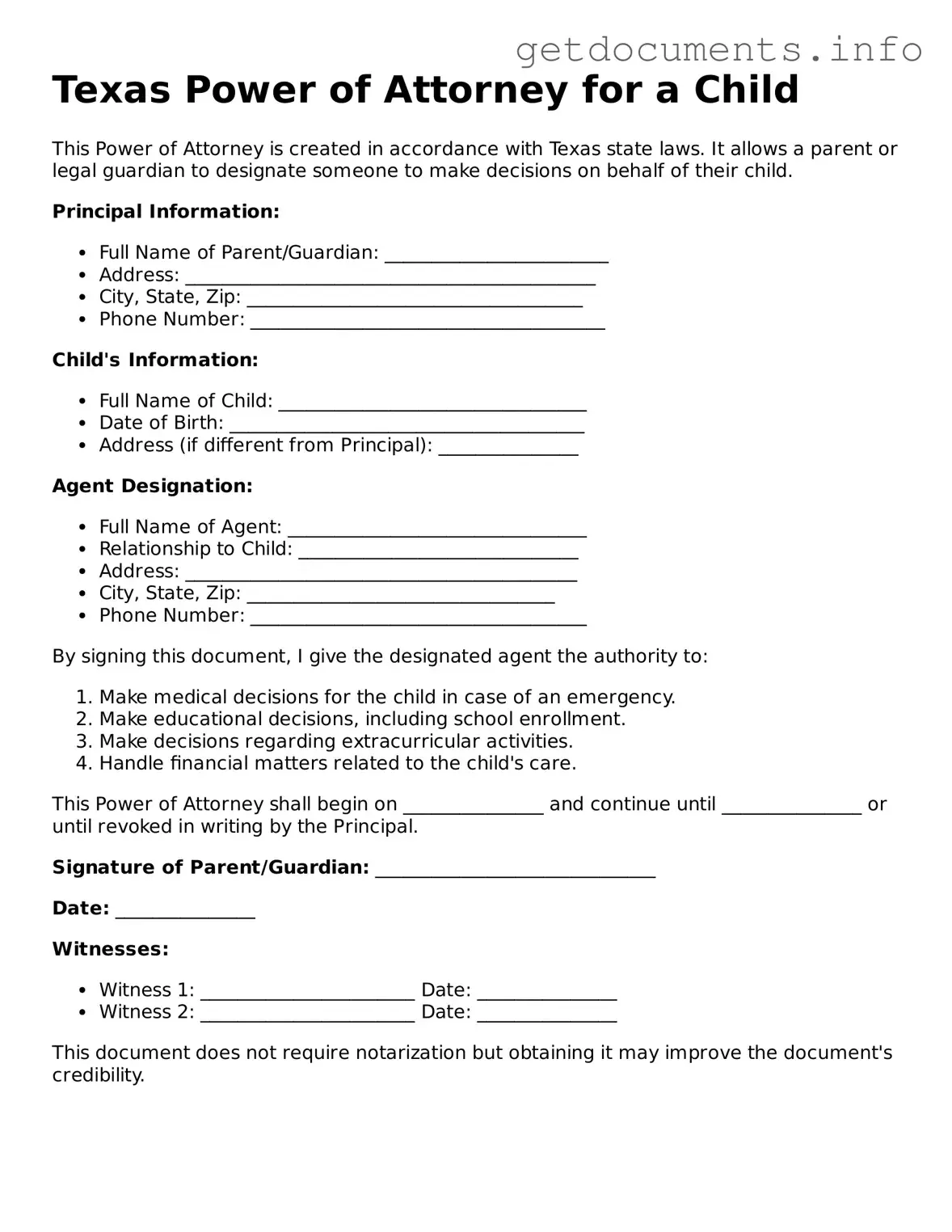Free Power of Attorney for a Child Template for Texas
The Texas Power of Attorney for a Child form is a legal document that allows a parent or guardian to designate another adult to make decisions on behalf of their child in specific situations. This form ensures that children receive necessary care and support when their primary guardians are unavailable. Understanding this form is crucial for parents who want to ensure their child's well-being in their absence.
Ready to take the next step? Fill out the form by clicking the button below.
Access Power of Attorney for a Child Editor

Free Power of Attorney for a Child Template for Texas
Access Power of Attorney for a Child Editor
Got places to be? Complete the form fast
Fill out Power of Attorney for a Child online and avoid printing or scanning.
Access Power of Attorney for a Child Editor
or
⇩ PDF File
